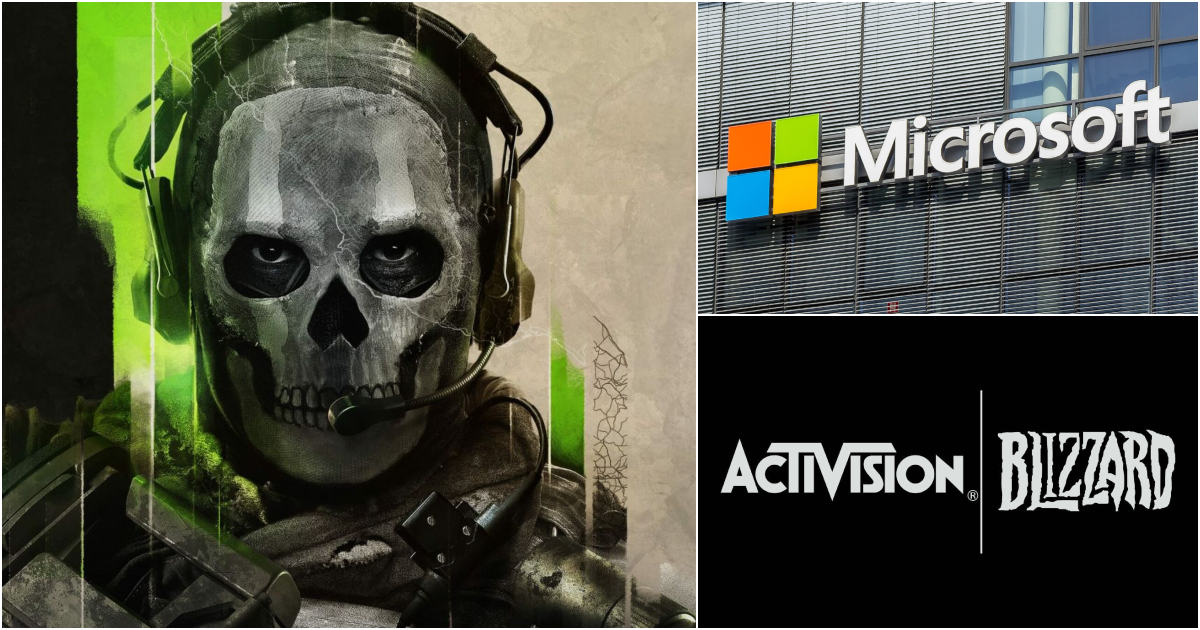UK regulator offers Microsoft to take Call of Duty out of equation in Activision Blizzard deal
The UK’s Competition and Markets Authority (CMA) has published its provisional findings as part of its in-depth investigation into Microsoft’s acquisition of Activision Blizzard. The regulator proposed a few remedies such as excluding Call of Duty from the $68.7 billion deal.

What happened?
The CMA concluded that the Activision Blizzard acquisition “could result in higher prices, fewer choices, or less innovation for UK gamers,” according to an official announcement published on February 8.
These findings are based on a five-month investigation that included site visits and hearings, analysis of over 3 million internal documents, a survey of UK gamers, and a collection of evidence from other platform holders and publishers.
“Our job is to make sure that UK gamers are not caught in the crossfire of global deals that, over time, could damage competition and result in higher prices, fewer choices, or less innovation,” Martin Coleman, chair of the independent panel of experts conducting the investigation, said. “We have provisionally found that this may be the case here.”
The CMA expects Microsoft and Activision Blizzard to address the list of proposed remedies by February 22 and respond to these provisional findings by March 1. The final decision on the acquisition will be announced by April 26.
What are the CMA’s main concerns?
- The Call of Duty franchise could make a “material difference to the competitiveness of rivals’ gaming platforms,” especially on consoles. Activision Blizzard’s portfolio looks even stronger when taking World of Warcraft (PC) and Candy Crush (mobile) into account.
- “We have provisionally found that [Microsoft] would have an incentive to make [CoD] either partially or totally exclusive to Xbox,” the CMA said. This could reduce the choice for other players, as this IP is really important to PlayStation where it accounts for a “significant proportion” of total playtime.
- The CoD exclusivity could accelerate Microsoft’s long-term growth, both in terms of Game Pass subscription base and profits. The CMA added that the deal “may be expected to result in an SLC (Substantial lessening of competition) in gaming consoles in the UK.
- The merger could give Microsoft an unfair advantage in cloud gaming, an area the regulator suggests will be “transformative” for the games industry in the next few years. It could also hurt the company’s rivals in this field like Nvidia, Sony, and Amazon.
- Overall, the CMA is concerned that the Activision Blizzard acquisition “will ultimately harm current and future gamers, whether they are Xbox users, PlayStation users, or cloud gaming users.” This includes a possible reduction in the range and quality of games for users of other platforms.
Proposed remedies
The CMA offered Microsoft structural remedies to clear the deal and “achieve a comprehensive solution.” The three options include:
- Removing all business related to Call of Duty from the deal;
- Acquiring Activision Blizzard without the Activision Segment;
- Acquiring Activision Blizzard without both Activision and Blizzard segments (the deal would include only King, perhaps).
The UK watchdog also mentioned behavioral remedies, but added that they can’t be used as the primary source of remedial action. This means that while Microsoft’s commitment to shipping Call of Duty to PlayStation, Steam, and Nintendo for the next 10 years is a positive move, it won’t be enough for the CMA to approve the merger.
The regulator will also consider any other remedies taht Microsoft or Activision Blizzard will propose. These concessions are to ensure that the $68.7 billion acquisition doesn’t result in lessening competition, as well as higher prices, reduced choice, lower quality, and worse service.
Microsoft’s response
A Microsoft representative told VGC that the company is ready to address the CMA’s concerns by “offering effective and easily enforceable solutions.”
Our commitment to grant long term 100% equal access to Call of Duty to Sony, Nintendo, Steam and others preserves the deal’s benefits to gamers and developers and increases competition in the market. 75% of respondents to the CMA‘s public consultation agree that this deal is good for competition in UK gaming. Corporate Vice President & Deputy General Counsel at Microsoft
Alaily added that by “100% equal access” Microsoft means that over the course of 10 years, Sony and Nintendo players will get the same price, content, and features as Xbox users.
